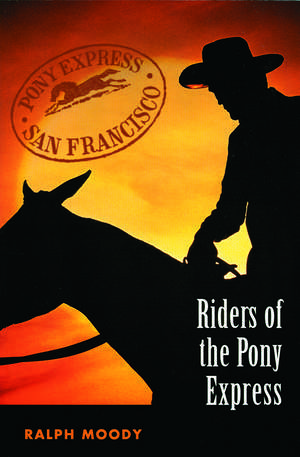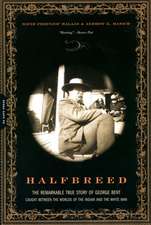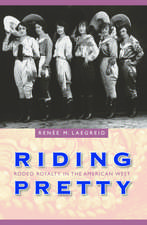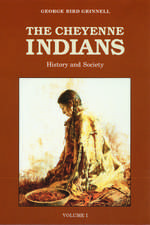Riders of the Pony Express
Autor Ralph Moodyen Limba Engleză Paperback – sep 2004
Russell hired eighty of the best and bravest riders, bought four hundred of the fastest and hardiest horses, and built relay stations along a central route--through modern-day Kansas, Nebraska, Colorado, Wyoming, Utah, and Nevada, to California. Informed by his intimate knowledge of horses and Western geography, Ralph Moody's exciting account of the eighteen critical months that the Pony Express operated between April 1860 and October 1861 pays tribute to the true grit and determination of the riders and horses of the Pony Express.
Preț: 89.68 lei
Nou
Puncte Express: 135
Preț estimativ în valută:
17.16€ • 18.35$ • 14.31£
17.16€ • 18.35$ • 14.31£
Carte disponibilă
Livrare economică 28 martie-11 aprilie
Preluare comenzi: 021 569.72.76
Specificații
ISBN-13: 9780803283053
ISBN-10: 0803283059
Pagini: 184
Ilustrații: 26 illustrations, 22 maps, index
Dimensiuni: 135 x 203 x 17 mm
Greutate: 0.2 kg
Ediția:Bison Books.
Editura: BISON BOOKS
Colecția Bison Books
Locul publicării:United States
ISBN-10: 0803283059
Pagini: 184
Ilustrații: 26 illustrations, 22 maps, index
Dimensiuni: 135 x 203 x 17 mm
Greutate: 0.2 kg
Ediția:Bison Books.
Editura: BISON BOOKS
Colecția Bison Books
Locul publicării:United States
Notă biografică
Ralph Moody (1898–1982) is the author of Come on Seabicuit! as well as the Little Britches series about a boy's life on a Colorado ranch, all available in Bison Books editions.
Recenzii
"[A] vivid portrayal of the courageous, hard-riding men who braved hazardous terrain, foul weather, and hostile Indians to carry the mail via Pony Express."—Booklist
"No boy or girl (or adults either) will want to lay down this play-by-play account of each rider's 'stint.' . . . The many vivid drawings and the clear and detailed maps add much to the effective demonstration."—San Francisco News
"A true adventure story in which the period comes alive."—San Francisco Chronicle
"This is aimed at the young reader, but it is well-written enough for the adult to enjoy. Telling of life in a time when the teenage male was expected to handle everything that an adult man could, it gives a message of self-reliance, determination, and independence."—American Quarter Horse Journal















